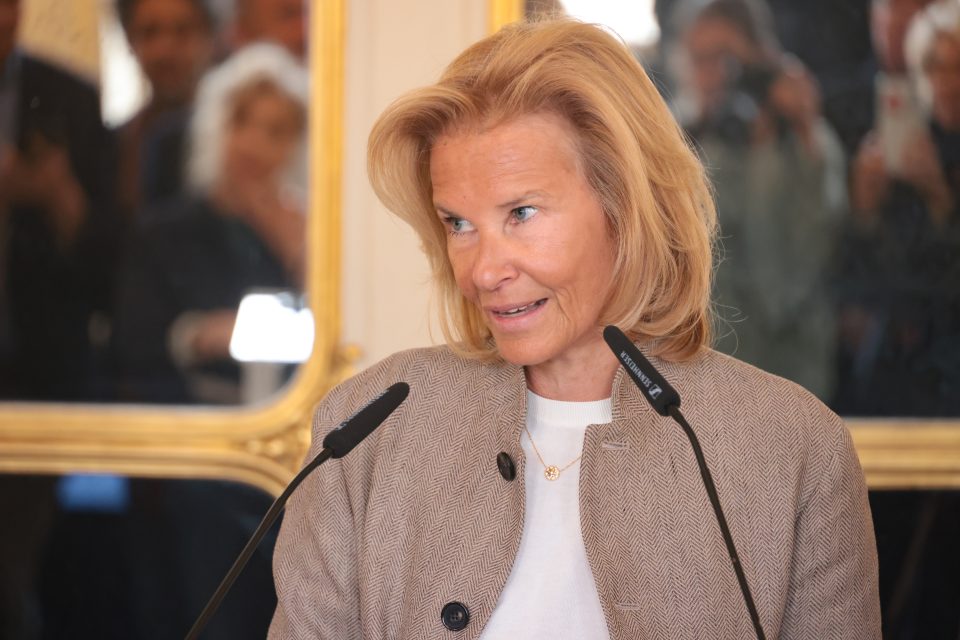President Donald Trump had no qualms about calling “tariff” the “most beautiful word in the dictionary,” but nobody anticipated this would affect the film sector.
However, that appears to be the plan, as stated in Trump’s Truth Social posting.
earlier this week
, which might lead to significant impacts on the European film sector.
The president vowed to impose a 100% tariff, but didn’t share further details on when and how it might be rolled out.
If this were to take effect, it could decimate whole sectors of the economy in the U.K. and Central Europe, particularly since an increasing number of Hollywood films and TV series, including
Wicked
and
Game of Thrones
spinoff
House of the Dragon,
are more frequently being filmed or created overseas.
Trump said Hollywood was being “devastated” by the shift, and pointed out that foreign incentives are “propaganda” which pose a “national security threat” to the U.S.
Nevertheless, since most prominent media corporations, be they Walt Disney or Universal Pictures, frequently produce their projects overseas, it’s evident that the filmmaking industry has become completely international—a contradiction to Trump’s “Make America Great Again” narrative.
Brian Cox, renowned for his portrayal of Logan Roy in the HBO series,
Succession
, told
Times Radio
The Trump administration failed to grasp “the intricacies of film production, as well as the rising costs associated with making movies, particularly how these expenses have significantly increased in the United States.”
“It’s a form of absurdity coupled with heavenly ignorance from everyone involved,” Cox said.
The announcement about movie tariffs comes following years of upheavals for the sector, such as delays caused by the pandemic, strikes initiated by Hollywood actors and writers, and Los Angeles wildfires. These impacts have had global consequences.
Iris Knobloch, president of the Cannes Film Festival, declared that “Hollywood is back” and said the industry is “reinventing itself”. While it’s still early to assess the impact of what might happen if the tariffs roll out, Knobloch, a former Warner executive, told the
Financial Times
that “films have always been resistant to any kind of political or other pressures.”
“I am hopeful though that the international movie industry will not be immobilized by hesitance and doubt,” she stated.

Many questions arise about how tariffs could affect film production.
Approximately half of the expenditure on film and television productions by American producers in 2023 occurred outside the United States for projects with budgets over $40 million, as reported.
research firm ProdPro
.
This is primarily due to countries such as the U.K., Belgium, and Hungary providing substantial incentives, which range from 25% to 45%.
in rebates
, if films and productions are created there. Conversely, the expense of producing movies in Hollywood tends to be significantly greater.
It’s not unusual for big-budget films, like those produced by major studios, to
Mission Impossible
to feature impressive international settings where the story takes place.
It involves much more than simply shooting footage—the entire movie-making journey is extensive and requires collaboration from numerous individuals before it becomes the finished piece we enjoy either at home or in cinemas. Production companies collaborate with artists worldwide during different phases of post-production, including editing, sound design, computer-generated imagery (CGI), among others.
It will be difficult to impose tariffs on certain aspects of the process without affecting others, particularly since it isn’t always straightforward to determine where each step of the entire manufacturing process occurs—whether in the U.S. or abroad.
Consider the U.K. as an illustration. The expenditure on film and top-tier television productions in the nation reached £5.6 billion ($7.4 billion) in 2024, marking a rise of 31% compared to the previous year, as reported by the British Film Institute.
British Film Institute
(BFI). A vast majority of what was spent came from the U.S.
“While this announcement is clearly concerning, we need to understand the detail surrounding the proposed tariffs,” Adrian Wootton OBE, the chief executive of BFI, told
Efwebe
In a statement, they said, “Over the next few days, we will convene meetings with [the] Government and our industry policy team to explore this matter further. Both the U.K. and U.S. have maintained a robust, joint legacy in filmmaking, most recently marking 100 years of inventive cooperation and creation.”
The Bectu union, which represents employees in the media sector in Britain,
said tariffs
Could deliver a knockout punch to an industry that is barely rebounding and would be quite concerning news for tens of thousands of skilled freelance filmmakers in the U.K.
The UK has recently inked a trade agreement with the US, and there are already
active discussions
Regarding the topic of tariffs imposed on film production.
The bright side, as noted by Disney’s CFO Hugh Johnston, was
a
CNBC
interview
This week, Trump aims to support the film industry.
“What truly uplifted me was hearing the President discuss his desire to support the industry and strengthen it,” he stated.
For the moment, though, there are
more questions
then responses regarding the tariffs that could ensue.
The tale was initially showcased on
Efwebe
